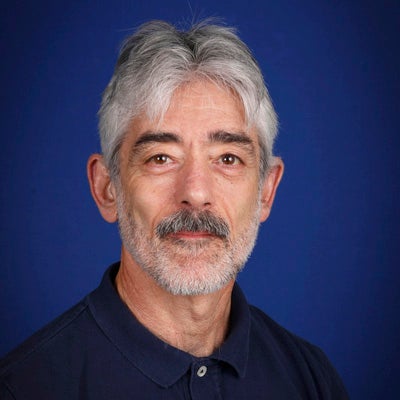- Professor Emeritus
- Email: wagre@uri.edu
Biography
Professor Green joined URI in 1992 following 11 years of professional practice in the Boston area. Sustainable design is the focus of much of his work. He teaches studios on issues related to sustainable communities, sustainable homesteads, and green materials and technologies. He has also been active in the master planning process employed by URI and sits on both the URI Master Plan Technical Advisory Committee and President’s Council on Sustainability.
Research
Particular areas of interest include:
- Service-Learning Design Studios
- Sustainable Communities and Sustainable Design Practices
- Herbaceous Perennials
In our Service-Learning Community Design Studios, senior landscape architecture students work with communities and non-profit organizations to address real-world issues. Students collect information, analyze sites, and run public workshops and charrettes in order to engage a stakeholder group. The classes prepare master plans, final reports, and make presentations in a variety of public settings. Studio projects have been conducted for the towns of Charlestown, Exeter, North Kingstown, Richmond and South Kingstown. They have also been conducted for the URI Graduate School of Oceanography, Department of Housing and Residential Life, College of the Environment and Life Sciences and the Washington County Regional Planning Council.
Sustainable Communities and Sustainable Design Practices – Landscape architecture students in the LAR Design III Sustainable Design Studio begin the semester with an exercise to design a sustainable homestead. The objective is to analyze a site and develop a design that can satisfy the needs of a family while minimizing impacts to the landscape and its systems. While the emphasis remains on creating sustainable environments, final projects grow in size and complexity to include master plans for campuses, roadway corridors and community and village centers. For these projects, students learn about sustainable practices and materials and the importance of public participation. They consider alternative layouts, energy supplies and building designs, wastewater treatment and stormwater management systems and they address issues associated with food production, transportation and native plant communities.
Herbaceous perennials – The need continues to be able to use and promote herbaceous materials that are suitable for the region, require less care and fewer chemical inputs, are of a non-invasive nature, and possess valuable aesthetic qualities. Daylilies, hostas and other plants are evaluated for these purposes.
Education
- MLA, Cornell University, 1981
- B.A., State University of New York at Albany, 1972
Selected Publications
- Thompson, Robert and William A. Green. “Sustainability in Higher Education.” International Journal of Sustainability in Higher Education: Vol.6 No. 1. Bradford, U.K.: Emerald Group Publishing Limited. 2005.
- Thompson and William A. Green. “Pursuing Sustainability from the Middle: The Experience at the University of Rhode Island.” The Declaration, University Leaders for Sustainable Development: Washington, D.C. 2004.
- Green, William A.. “Hoping For More, Settling For Less: Struggling To Create Sustainable Neighborhoods in New England.” Landscapes on the Edge – Proceedings of the Annual IFLA Congress. Calgary, Canada. 2003
- Cameron, Mark, Ann Forsyth, William Green, Henry Lu, Patricia McGirr, Patsy Eubanks Owens and Ronald Stoltz. “Learning Through Service: The Community Design Studio”. College Teaching. Washington, DC. Heldref Publications. 2001.
SELECTED PRESENTATIONS
- Green, W.A. and Catherine Weaver. 2013. “Using service-learning design studios to enhance community connections and to increase their value to stakeholders, clients and professional designers”. Annual Meeting of the Council of Educators in Landscape Architecture, Austin, Texas.
- Green, W.A. 2010. “Context and Sustainability: The role context plays in determining expectations, opportunities and outcomes in South Africa and Australia”. CELA/ISOMUL Maastricht, Netherlands.
- Green, W.A. 2010. “Context and Sustainability in South Africa and Australia”. University of Massachusetts, Amherst, MA.
- Green, W.A. 2009 “New England Sustainable” University of Cape Town, South Africa.
- Green, W.A. 2009 “New England Sustainable” University of Pretoria, South Africa.
- Green, W.A. 2009. “Helping Build a Community Vision by Integrating Participatory Practices
- into Design Studios”. University of Pretoria, South Africa.
- Green, W.A. 2009. “Creating a sustainable community: understanding place and applying principles and knowledge in a complex global environment”, University of Melbourne, Australia.
- Green, W.A. 2006 Invited Moderator for panel “Something Green, Something Old: Sustainable Historic Landscapes.” Rhode Island Historic Preservation Conference, Pawtucket, RI 2006.
- Green, W.A. 2006. “Celebrating Rural Villages.” A Panel on Development, RI Rural Development Council Annual Forum, Kingston, RI. 2006.
- Green, W.A. 2006. “Community Design Studios as Genre Change Engines.” CSLA/CELA. Vancouver, British Colombia, Canada. 2006.

